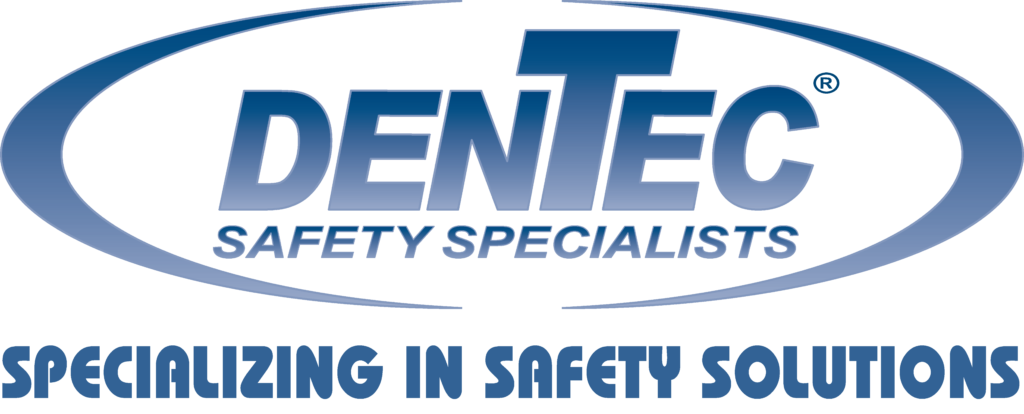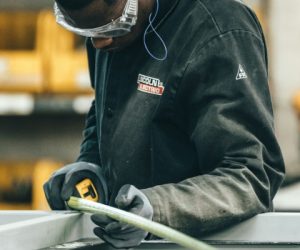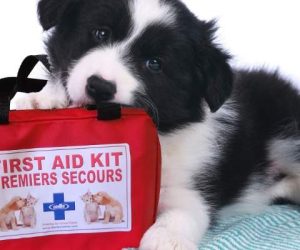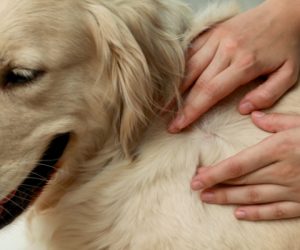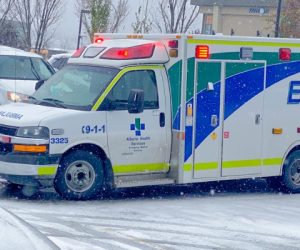Not all masks are created equal, yet two years into a global pandemic many people still do not understand the important differences between the numerous styles of masks and respirators and what level of protection is needed to protect against Omicron and future variants. This quick overview will point out the “Dentec Difference” when choosing proper protection for yourself and loved ones.
Cloth & Surgical Masks
3 Ply, cloth & gator style masks are reported to be ineffective against the spread of COVID due to the fact they do not provide filtration, are loose fitting and cannot provide a tight seal. Dr. Sanjay Gupta and Dr. Faucci reported that the only effective respirator to use is an N95 (or better) respirator that provides a tight seal.
With a cloth face covering (Cloth FC), the user has 75% inward and outward leakage. Users may wear for source control but should limit time indoor with others and proximity to others. (Inward and outward effectiveness of cloth masks, a surgical mask, and a face shield | medRxiv).
With a surgical mask, the user has 50% inward and outward leakage A surgical mask may be appropriate to wear as source control. However, it does not provide adequate protection for users from inhalable infectious particles. (Inward and outward effectiveness of cloth masks, a surgical mask, and a face shield | medRxiv).
With a non-fit tested N95 FFR (filtering face piece respirator) the user has 1-10% inward leakage and outward leakage (assuming you’re wearing a respirator without an exhalation valve). Further examination is required to quantify the exact amount of source control provide by respirators with exhalation valves, however current studies do support those respirators with exhalation valves provide at least similar source control compared to a loose fitting 3-Ply or Surgical Mask.
COVID-19 Fact Sheet: Workers Need Respirators – ACGIH.
With a fit tested N95 FFR (without valve) the user has a 1-5% inward leakage and outward leakage.
KN95s VS N95s
According to Dr. Sanjay Gupta in a recent January 2022 CNN article:
“Dr. Abraar Karan, an infectious disease fellow at Stanford, once told me that if the American public wore N95 or KN95 masks in public for just four weeks, we could essentially end the pandemic.”
So, what are the main differences between KN95s and N95s? We break it down below:
1) Certification & Quality Standards
KN95 is a Chinese Standard with little regulatory oversight to ensure ongoing quality and production standards. Whereas N95 is certified through NIOSH (National Institute of Occupational Safety and Health) and ensures products undergo a rigorous battery of tests as well as ongoing quality control audits to ensure consistency in protection. As was noted by the CDC, up to 6 in 10 KN95s do not meet certification criteria and quality standards. NIOSH respirators will always have TC (Testing & Certification) number and the manufacturers name on them. KN95s on the other hand are not required to have these markings.
CDC weighs recommending better masks against omicron variant – The Washington Post).
2) Ear Loops
One of the easiest ways to distinguish a KN95 from an N95 is the ear loops. NIOSH does not certify products with ear loops as you cannot achieve a tight enough fit and seal on the face. NIOSH certified N95 will ALWAYS have two headband style straps. When positioned properly the top strap goes goes over the crown of the head and the bottom strap goes around the neck under the ears to secure the mask and provide a tight seal to the user’s face.
What about KF94s?
KF94s are a Korean standard of mask and generally speaking these are of good quality and offer a higher level of protection than KN95s. This is because Korea has stringent testing protocols for the production of respiratory products.
The typical model includes a tri-fold design and head strap which again secures a tighter seal to the face.
If deciding between a KN95 or a KF94 we recommend choosing the KF94, a better-quality mask which will provide the user with a higher standard of protection.
The Issue with Disposables
The COVID-19 pandemic is estimated to generate 72,000 tons of medical waste everyday, most of which are disposable masks! Healthcare professionals are required to toss their disposable N95 after each patient interaction. Disposable N95 waste alone will generate 6,700 lbs / 1,000 people / per year.
And don’t forget the carbon footprint of manufacturing and overseas delivery and distribution of all these disposable masks and respirators. How can we make public health priority while simultaneously destroying the health of our planet?
According to a MIT News Article: The Environmental Toll of Disposable Masks:
“The MIT team decided to model the impacts of several different scenarios, which encompassed usage patterns before and during the pandemic. According to their analysis, if every health care worker in the United States used a new N95 mask for each patient they encountered during the first six months of the pandemic, the total number of masks required would be about 7.4 billion, at a cost of $6.4 billion. This would lead to 84 million kilograms of waste (the equivalent of 252 Boeing 747 airplanes).
They also found that any of the reusable mask strategies would lead to a significant reduction in cost and in waste generated. If each health care worker were able to reuse N95 masks that were decontaminated with hydrogen peroxide or ultraviolet light, costs would drop to $1.4 billion to $1.7 billion over six months, and 13 million to 18 million kilograms of waste would result (the equivalent of 39 to 56 747s).
Those numbers could potentially be reduced even further with a reusable, silicone N95 mask, especially if the filters were also reusable. The researchers estimated that over six months, this type of mask could reduce costs to $831 million and waste to 1.6 million kilograms (about five 747s).
Masks are here to stay for the foreseeable future, so it’s critical that we incorporate sustainability into their use, as well as the use of other disposable personal protective equipment that contribute to medical waste.”
– Jacqueline Chu, a physician at Massachusetts General Hospital.
Elastomeric N95 Respirators
Elastomeric Half Mask Respirators provide an enhanced seal to the wearer’s face with many models providing the ability to adjust their suspensions. This is in stark contrast to disposable respirators which often-times only have two elastic bands that go around the head. These elastic bands do not allow for adjustment to mitigate excessive pressure on your face/skin. Also, most FFRs are only available in one size. If you are a smaller or bigger person, you may not be able to achieve a proper fit due to the sizing limitations and lack of suspension adjustment.
Elastomeric respirators are reusable so if you have one, you don’t need to worry about shortages of N95s or surgical masks when they are in short supply. Elastomeric respirators are a sustainable solution and are designed to be cleaned, decontaminated, and reused. Because of this feature, one elastomeric can do the work of hundreds, if not thousands, of disposable N95 masks. They help keep costs down and they can be used in more work environments due to their rubber like material.
Most importantly elastomeric respirators like the Comfort-Air®Nx (Nx: NO exhalation valve) series of respirators are NIOSH certified (Health Canada approved) and made in the USA!
According to the Executive Director of American Masks Manufacturing Association, Nicolas Smit:
“In terms of right now and with the rapid spread of the new Omicron variant any public space and business could and should move to elastomeric masks like the Comfort-Air®NxMD. In order to slow and stop the spread we need to make high grade mask protection a priority for all healthcare workers and from grocery store employees to workers on factory lines. Anywhere you are near others you should be wearing an N95 respirator. We can keep businesses open and the economy going by using this strategy of making high grade respiratory protection a priority.”
**For a thorough evaluation of disposable respirators Aaron Collins AKA @MaskNerd (Twitter) has done a fantastic job at evaluating a wide variety of masks and respirators. We recommend checking him out as a credible resource if researching respiratory protection.
If you have any questions about mask and respiratory protection to stay safe on the job or in public, chat with one of our Safety Specialists for some guidance in choosing the right level of protection for any situation. Email: [email protected] or call us at 888-533-6832.
Dentec Safety is a leading manufacturer and distributor of safety products in the North America since 2004. Dentec Safety is dedicated to providing the highest quality safety products and solutions delivering enhanced value and comfort. Our expertise from decades of experience in Industrial Safety and our innovative design technologies have solidified us as thought leaders in the field. Protection and comfort are at the core of everything we do at Dentec. As a leading manufacturer of Safety Solutions, it is our mission to help organizations do the right thing, keep their employees safe and exceed Industry Health & Safety Standard.
